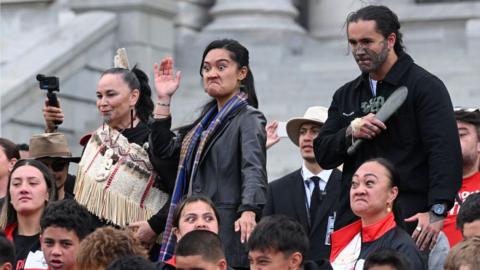Following a heated debate, the suspensions handed out on Thursday are the longest any New Zealand lawmaker has faced. The previous record was three days.
New Zealand has long been lauded for upholding indigenous rights, but relations with the Māori community have been strained recently under the current conservative government Luxon-led government.
His administration has been criticised for cutting funding to programmes benefiting Māori, including plans to disband an organisaiton that aims to improve health services for the community.
Luxon though has defended his government's record on Māori issues, citing plans to improve literacy in the community and move children out of emergency housing.
The Treaty Principles Bill that has been at the heart of this tension. It sought to legally define the principles of the Treaty of Waitangi, the pact the British Crown and Māori leaders signed in 1840 during New Zealand's colonisation.
The bill's defenders, such as Act, the right-wing party which tabled it, argue the 1840 treaty needs to be reinterpreted because it had divided the country by race, and does not represent today's multicultural society.
Critics, however, say it is the proposed bill that would divide the country and lead to the unravelling of much-needed protections for many Māori.
The bill sparked a hīkoi, or peaceful protest march, that lasted nine days, beginning in the far north and culminating in the capital Wellington. It grew to 40,000 plus by the end, becoming one of the country's biggest marches ever.
The Treaty Principles Bill was eventually voted down 112 votes to 11 in April, days after a government committee recommended that it should not proceed. The party holds six seats in the 123-member parliament.
